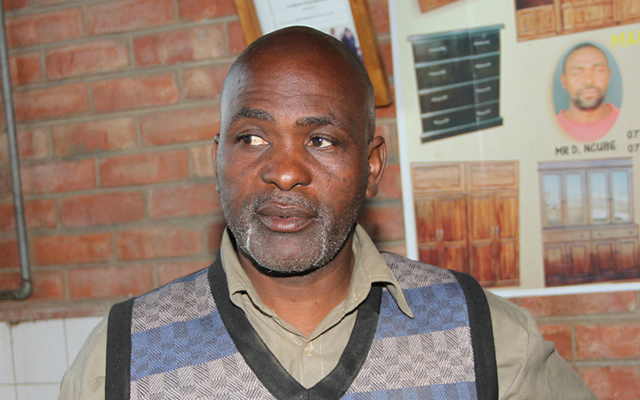Lumuzi Enterprises: Thriving furniture shop

Business Editor
AFTER completing a four-year carpentry and joinery course in 2008, Dennis Ncube, 43, could not find a permanent job and this dampened his hopes of a “brighter future”.At a time when the economy was at its knees and inflation running mad, job opportunities withered and only entrepreneurs spotted the opportunity.
Today Ncube is a proud director of a thriving young furniture shop, Lumuzi Enterprises (Pvt) Ltd situated at Bulawayo’s Kelvin North.
Business Chronicle met the soft-spoken Filabusi man and his co-partner Energy Majazi, 57, at their Number 33 firm at the Bulawayo City Council factory shells, phase one.
He explains his business adventure and dreams.
“During training we were taught entrepreneurship and basic business management skills. I kept hunting for jobs until I met Majazi and his wife, Patricia.
“We discussed business issues. With my skill and Majazi, a good administrator after he left his job, we thought of establishing our own company,” said Ncube.
“We noted the demand for household and office furniture, and given the availability of raw materials locally, especially hardwood from Matabeleland, we established Lumuzi Enterprises.”
Ncube said the first days of their operations were not easy but determination and focus kept them going.
He said they started using hand tools and later adopted use of electric powered machinery.
“We didn’t have any venture capital and borrowed $3,000 from relatives. We bought second hand industrial machines such as the thickness plane, spindle moulder T-35, bench saws and a belt sander,” said Ncube.
“We then got working space at the council factory shells. I was in charge of production with Majazi on administration and Patricia on bookkeeping and clerical. We then roped in Mazwi Moyo as a supervisor.”
He said the company started ticking prompting them to recruit five semi-skilled male youths and three females for general handy work.
The company manufactures doors, chairs and tables, dining suits, beds, wardrobes and wooden window frames.
It also does other carpentry and joinery work including upholstery, ceilings, repairs and kitchen fittings.
“At peak we employ 12 people and our market mainly covers individual buyers and a few companies who occasionally engage us. We also get tenders for repairs here and there,” added Ncube.
He said the company, given enough support, has the potential to grow and increase its workforce to plus 50.
“Capitalisation is our major challenge. We also need bigger operational space and modern industrial machines to match global furniture production trends.
“Demand for furniture is higher but cheap imports from China, South Africa and Botswana are suffocating our efforts. We wish government could address this and avail funding for small businesses like us at affordable interest rates,” said Ncube.
He said incessant power cuts and the underperforming economy were affecting their business with customers and companies having reduced spending power.
Ncube, however, said prospects of improved business were high with improvement of the macro-economy.
The outspoken Majazi said workspace was a major hindrance for up-and-coming businesses who cannot afford exorbitant rentals at private properties.
“We wish council could avail more land for us to build our own factories because private properties charges are beyond our capacity. With all the support this company can grow into a big firm,” he said.
Majazi, who also chairs the Bulawayo SMEs Chamber, said ordinary Zimbabweans can achieve economic independence through setting up own businesses.
He said the name “Lumuzi” stems from their “quest to settle down, have our own home, our own company where we can get everything we want”.
Majazi could not disclose the young firm’s turnover saying, “We cannot talk of turnover now seeing the economic situation is not encouraging. What I can say is that we need about $40,000 capitalisation to expand our business.”
Small to medium enterprises are the fastest growing economic sector globally and viewed as the panacea to industrial stagnation, especially in Bulawayo where nearly 100 established firms have closed shop or relocated.
In Bulawayo SMEs contribute about 67 percent of the city’s gross domestic product.











Comments